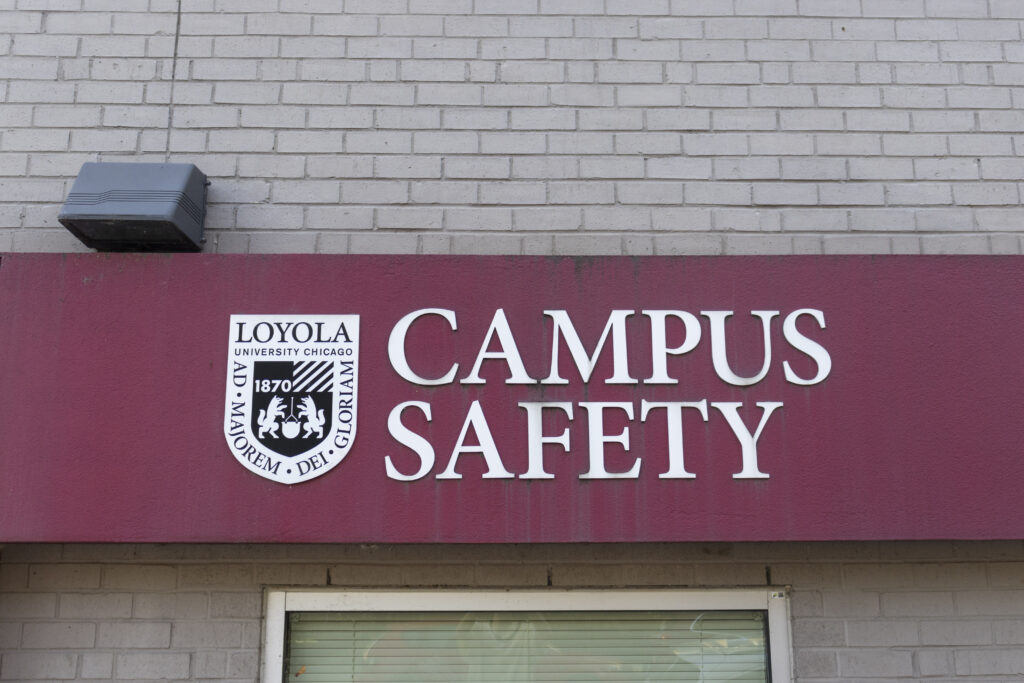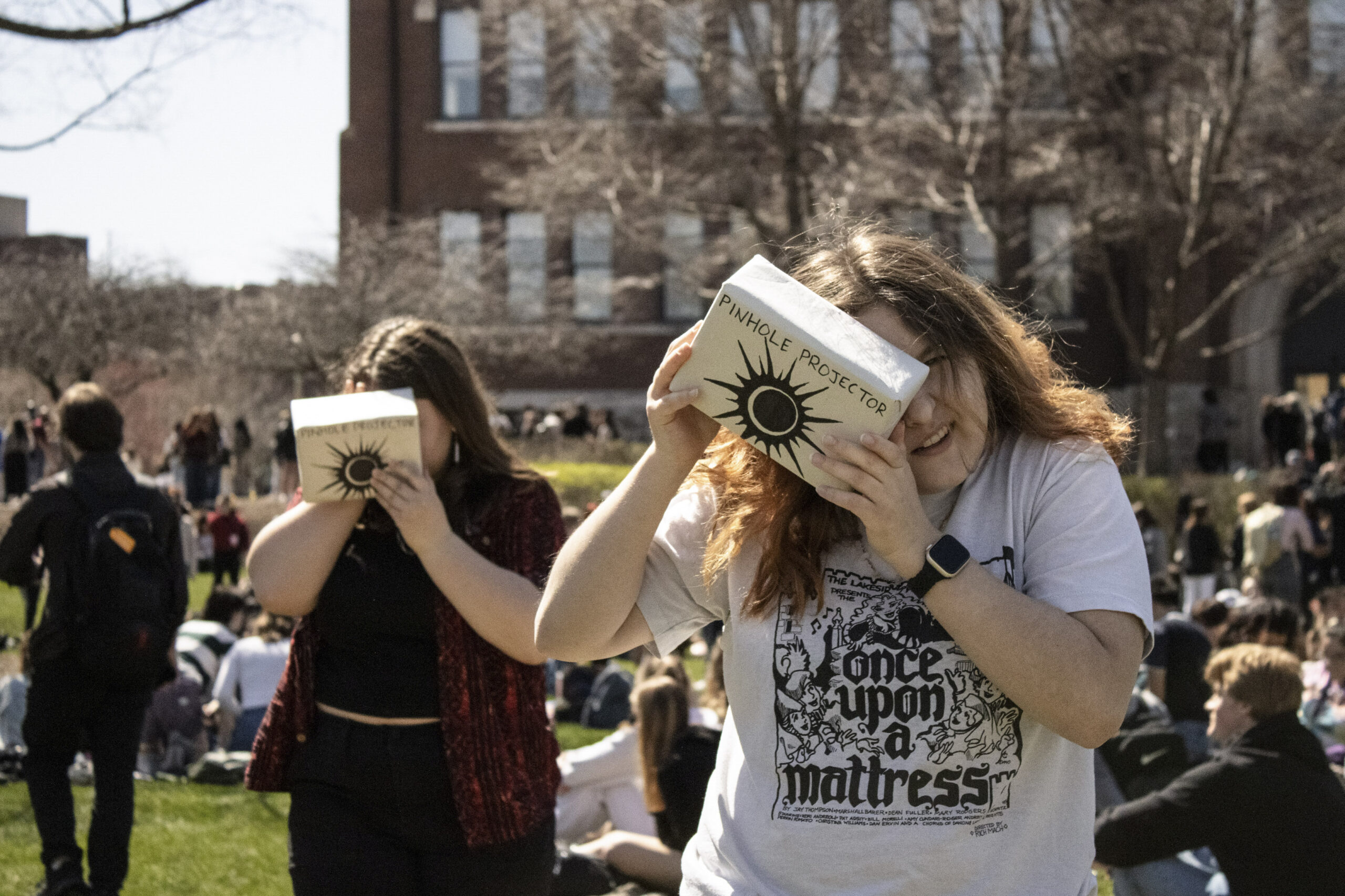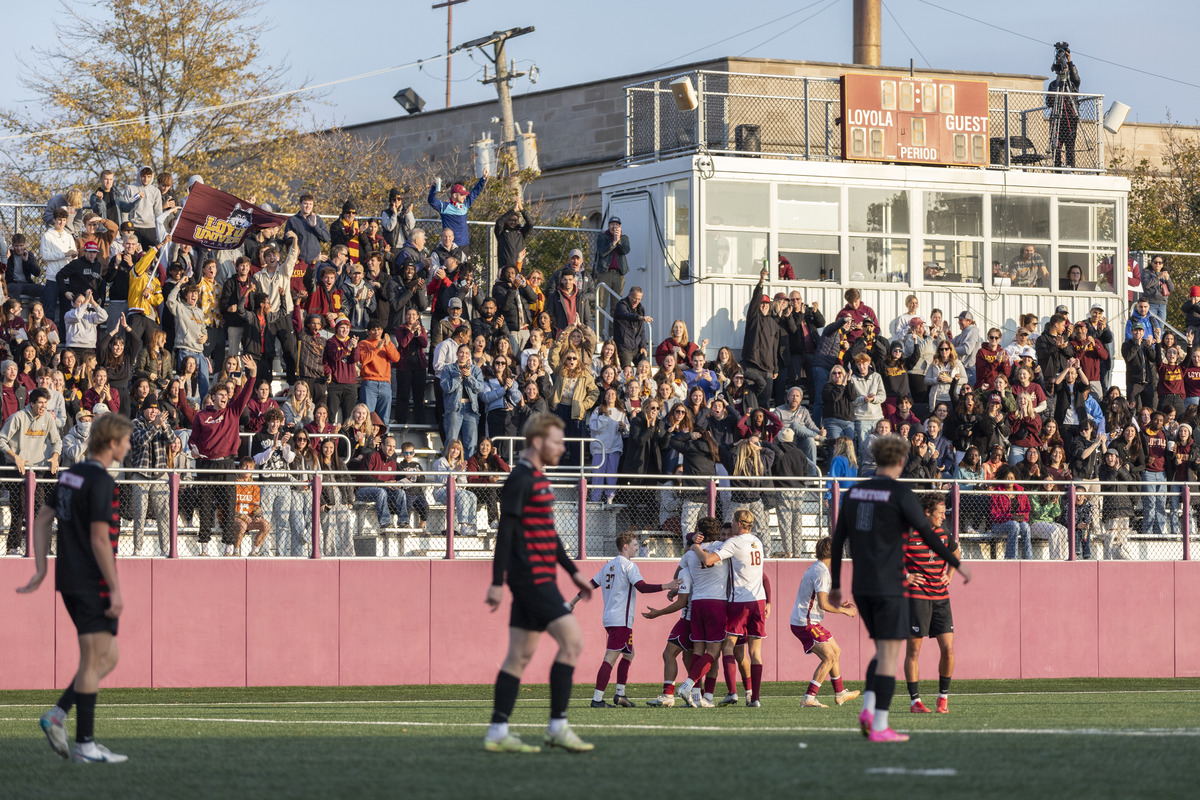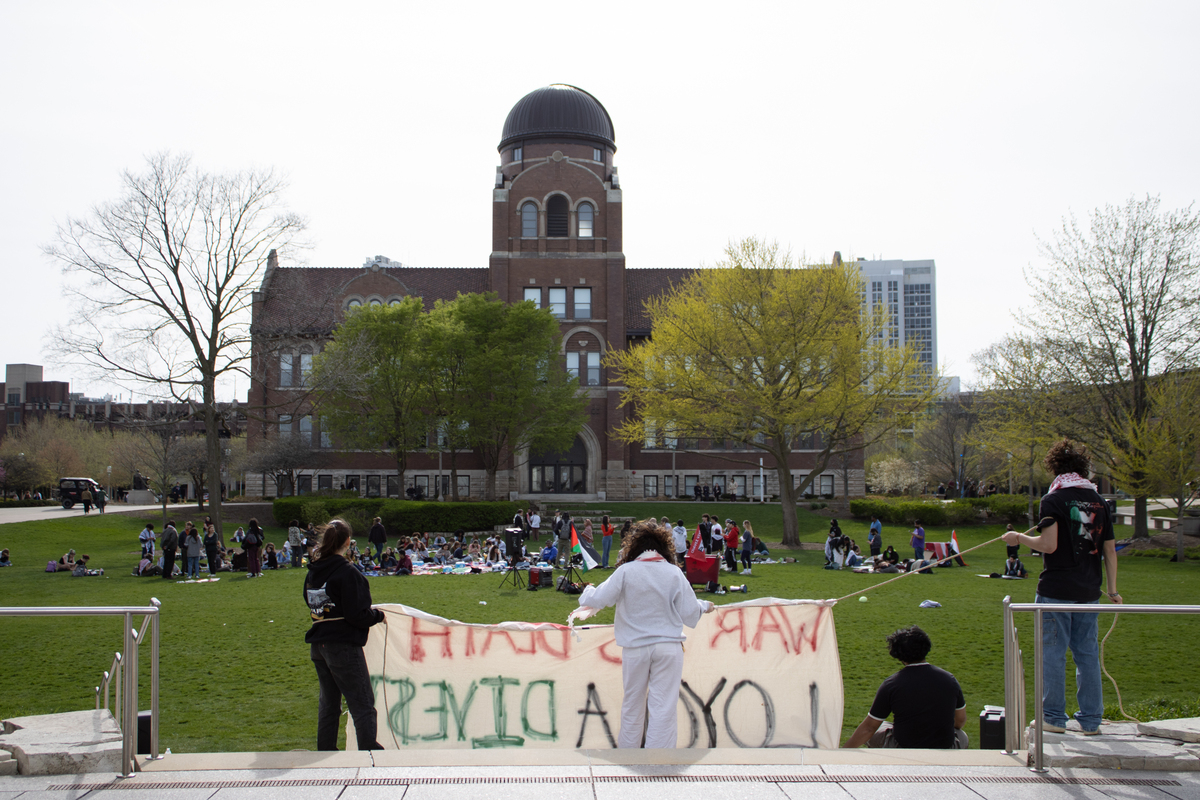The annual report features statistics for crime on campus and on immediate public property.
University Releases 2022 Clery Report with Campus Crime Statistics

Content warning: Murder, rape, sexual assault, gun violence
Campus Safety released this year’s Clery Act Annual Security Report and Fire Safety Report Sept. 28 which contains 2022 statistics for crimes occurring on campus and on immediate public property.
The Jeanne Clery Act ensures colleges and universities receive federal funding for the report while detailing campus safety policies and procedures. Campus Safety Cmdr. Tim Cunningham said the act was named after a 19-year-old student who was raped and murdered in her Lehigh University dorm in 1986.
On Loyola’s Lake Shore Campus, there were 13 reported cases of stalking, seven cases of burglary, three cases of rape and 155 disciplinary referrals for liquor law violations.
The report also includes data from the university’s Water Tower and Health Sciences campuses, the Cuneo Mansion and Gardens, the Retreat and Ecology Center, the John Felice Rome Center and the now-closed Vietnam Center.
Every higher education institution is required to publish the report annually, according to Cunningham. The guidelines, he said, can be “very, very specific” or “very vague.”
“They do that so that way you can take a Clery Report from the University of Miami and compare it to the University of Anchorage and have the same exact rules and standards,” Cunningham said. “That way you can compare them side-by-side without having to worry about state or local nuance differences.”
Geography
The geographic definitions are one of the most complicated aspects of the report, according to Cunningham. On-campus property is defined as property owned by the university for “a direct purpose to the educational mission of the university.” This includes Damen Student Center, residence halls and other directly-affiliated campus buildings.
On-campus student housing facilities are residence halls only, and Cunningham said public property is property owned by the government that is immediately adjacent to university property.
Cunningham gave the example that Fordham Hall is considered student housing, the adjoining Granada Center is on-campus property and the sidewalk outside both and the sidewalk on the other side of North Sheridan Road is public property.
The fourth category, non-campus, usually refers to Greek life housing or research centers at larger state schools — neither of which apply to Loyola, according to Cunningham.
Cunningham said the geography is important because the university and Campus Safety would be at fault for violating the Clery Act by over-reporting as much as they would for under-reporting.
“We would get in trouble if we put down a robbery that occurred in Insomnia Cookies,” Cunningham said, for example. “We would be fined $72,000 for counting that, because it does not count, it did not occur on Clery-applicable geography.”
Cunningham clarified none of the data applies to property of Lakeside Management, Loyola’s residential and commercial subsidiary, because it isn’t officially recognized as contributing to the university’s “educational mission.”
“It’s a game of inches at times,” Cunningham said.
He said there are multiple times when he’s had to stand at the scene of the crime with officers who were on the scene to determine what geographical category it would fall under in the Clery Report.
Statistics
The data in the Clery Report is broken into four categories: criminal offenses, hate offenses, Violence Against Women Act offenses and disciplinary referrals and arrests.
Criminal offenses, includes cases of arson, motor vehicle theft, robbery, statutory rape, incest, fondling and rape.
The report clarifies statutory rape involves sexual intercourse with a person under the age of consent — which is 17 in Illinois. Rape involves penetration, “no matter how slight,” without the consent of the complainant.
There were zero reported cases of statutory rape on any of Loyola’s campuses, but there were three reported rapes in the Lake Shore Campus residence halls and one reported in the John Felice Rome Center housing.
Fondling is defined in the report as “the touching of private body parts of another person for the purpose of sexual gratification” without consent. This includes when a person is mentally incapacitated.
On Lake Shore, there were three reported cases of fondling in residence halls and three on public property in 2022. There were two cases at Water Tower — only one of which was in Baumhart Hall — and one at the Health Sciences Campus in Maywood.
There were seven reported burglaries on Lake Shore property and two cases of robbery on public property. On Water Tower property, there was one reported burglary.
Additionally, there were two motor vehicle thefts on campus property, with 10 others on public property. There was also a motor vehicle theft on the Health Sciences Campus. Cunningham said motor vehicles include golf carts but most were cars, trucks or SUVs.
There were zero reported cases of incest, arson or statutory rape across all campuses in the report.
Likewise, there were zero reported in the second category — hate offenses — which includes simple assault, intimidation, vandalism and larceny theft. There were also no hate offenses reported in 2021 or 2020, the report reads.
This doesn’t include normal cases of assault or vandalism unless they are proven to be a hate crime.
“You have to prove that the offender’s motivations were because of actual or perceived bias — race, gender, sexual orientation, whatever it may be,” Cunningham said.
The Violence Against Women Act provides resources and directs action for victims of sexual assault. In the Clery Report, crimes listed in this category include domestic violence, dating violence and stalking.
The data includes crimes against people of all genders or sexual orientations.
“They don’t care about a person’s affiliation with the university, they don’t care about gender, age, anything,” Cunningham said. “The point of it is to give an accurate picture of what crime in that campus is.”
There were zero cases of domestic violence, defined as acts committed by a current or former spouse or intimate partner of the complainant in the report. Dating violence involves those who have been in a “social relationship of a romantic or intimate nature.” On the Lake Shore and Water Tower campuses, there were two total reported cases.
The report defines stalking as involving repeated actions that would cause a “reasonable person” to fear for their safety or suffer emotional distress. At Lake Shore, there were 13 reported stalking cases, seven of which were in the residence halls. At Water Tower, there was one reported stalking case.
“Stalking numbers are a little tricky because of technology these days,” Cunningham said. “People consider someone stalking them because they won’t leave them alone, sending them Instagram messages or Snapchat messages.”
In 2021, there were four reported cases of stalking on Lake Shore Campus and in 2020 there were 6.
Cunningham said some of their statistics are compiled in collaboration with Loyola’s Office of Student Conduct and Conflict Resolution, Residence Life and Office of Equity and Compliance, since students don’t report every crime directly to Campus Safety.
The last category — arrests and disciplinary referrals — pertains to weapons, drugs and liquor, according to the report, which only deals with the law and not Loyola-specific policies.
For example, it isn’t illegal to be in the presence of alcohol if someone is under 21 years old, but that does violate Loyola’s comprehensive policy. Similarly, marijuana is prohibited on Loyola’s campus but not illegal in the state of Illinois.
There were 155 disciplinary referrals for liquor law violations on the Lake Shore Campus, 153 of which were in residence halls. There were three referrals for drug use — one of which was in a residence hall.
In 2021, there were 140 referrals for liquor law violations.
“Did we have anyone arrested for alcohol? No,” Cunningham said. “You can imagine how busy we’d be.”
The report adds there was one arrest for carrying or possessing a weapon, which Cunningham said occurred in July 2022.
The report also documents fire safety on campus, but only for residence halls, of which there were no reported incidents.
Resources
The report also includes the university’s comprehensive policy, federal and state laws, resources for self-defense, drug and alcohol prevention, risk reduction, mental health support and more.
The Clery Act also requires the university to publish an online police log that goes back 60 days, according to Cunningham. The log includes crime within Campus Safety’s regular patrol boundaries — two blocks in every direction. Most of these crimes will not end up on the Clery Report but are required to be in the crime log.
Crime alerts, sent to the Loyola community over email, are also required by Clery.
“They are mandated for any Clery crime that occurs on Clery geography and is believed to represent an imminent or ongoing threat to campus,” Cunningham said.
Three alerts have been sent out this semester, including two motor vehicle thefts and a robbery outside Marquette Hall within one September week.
“We want students to be safe and we work as hard as we can to communicate with students how to stay safe,” Cunningham said.
To report a crime, Campus Safety can be contacted at 773-508-7233.
Featured image by Austin Hojdar / The Phoenix










